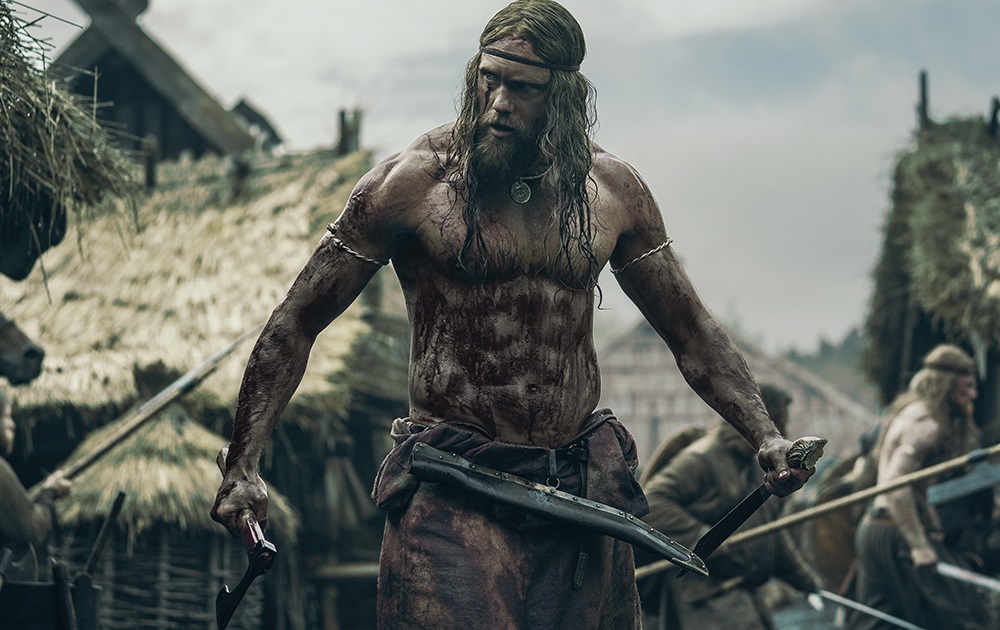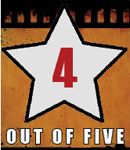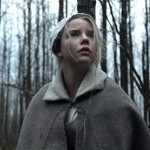According to an interview he gave to The New Yorker, director Robert Eggers did not have a fun time assembling the final cut of The Northman. Test audiences were perplexed by his brutal and bizarre Viking epic, and it took a lot of push-and-pull between Eggers and the studio who funded the movie to arrive at a cut everyone agreed on. The result is a version of the film that Eggers seems to approve of, if a bit exasperatedly: "I think I've delivered the most entertaining version," he told the magazine. "The most entertaining version is not necessarily something I'm usually striving for. But it was here, you know, and it happened." And then he hints that he's probably going to go back making smaller films where no one can tell him what to do.
So, with all that context in mind, let me say this up front: If The Northman that will be released in theaters on April 22nd is the studio-preferred cut of the film, meant to streamline the narrative and make it more palatable for general audiences, then I'd sure like to see Eggers' original cut. Because the version of the film being released is both ridiculously gory and weird as hell. Sure, the movie may have just enough in common with, say, Gladiator to give it more mainstream appeal than Eggers' previous two films. (Those being The Witch, a slow but atmospheric Satanic horror film set in 1600s America, and The Lighthouse, a 19th-century psychological thriller that's black and while, presented in a 4:3 aspect ratio, and basically features only two actors for its entire runtime.) But do not take that to mean Eggers has gone soft with The Northman. He colors outside the lines here early and often, creating a film that is bold and sometimes challenging.
The Northman tells the story of Amleth, a young Viking prince whose father is betrayed and murdered by Fjölnir (Claes Bang), the king's own brother. Amleth escapes the ambush but vows to one day seek revenge. Years later, a grown-up Amleth (Alexander Skarsgård), who spends his days dressing like a wolf and sacking small villages with his warrior clan, learns that his uncle has since lost his stolen kingdom and fled to Iceland with Amleth's mother, Gudrún (Nicole Kidman), to run a more modest farm. Amleth stows away on a slave boat destined for the farm and purposefully settles into a life of forced servitude as he waits for his moment to strike. In the meantime, he meets and falls in love with Olga (Anya Taylor-Joy), a slave girl and budding witch who has her own plans for escaping to a life of freedom. Again, when you break it down to the basics, The Northman doesn't sound too dissimilar to other historical epics, but Eggers crams the film with enough grotesque imagery, spectral prophecy, and ritualistic depravity — none of which I really want to spoil — that the end result feels very much in line with his earlier work.
It's also a visually captivating film. Early on, Amleth's tribe of animalistic warriors raid a small town, and Eggers and cinematographer Jarin Blaschke have the camera calmly pan horizontally from left to right and back, methodically surveying the carnage as buildings burn and bodies fall. Nearly every shot in the movie feels meticulously crafted. And while I don't think I'd call the images The Northman offers up beautiful, they almost always are striking. The same goes for the accompanying musical soundtrack, which favors a cacophony of discordant chords and caterwaulings over anything resembling a heroic melody.
One note before we get into the cast: Yeah, the intensity of the Scandinavian accents varies wildly from character to character, and I'm sure there will be plenty of debate on Film Twitter about the authenticity of said accents on the whole. I'll just say that I wasn't particularly bothered by what any of that actors chose to do in that regard and found myself delighted whenever the film's dialogue would switch over from English to a more ancient-sounding Nordic language. So, with that out of the way, I can say that Skarsgård centers the film effectively, bringing a feral intensity to his early scenes before evolving into a character who's both more cunning and more resigned to his fate. He subtly changes his posture depending on Amleth's situation — hulking up when he's ready to fight and slouching over when he's doing slave work and trying to blend in. Bang makes for a fine villain, and it will not surprise you that supporting cast members Willem Dafoe and Ethan Hawke make huge impressions with limited screen time.
The person having the most fun here might be Kidman, and, honestly, this is the most I've enjoyed one of her performances in a long time. For a while, the film plays Gudrún's allegiances close to the vest. Was she abducted by Fjölnir? Or did she willingly choose to build a new life with him? Eventually the film pulls back the veil, and Kidman sinks her teeth into her character's shifting allegiances with gusto. It's fierce and fun to the point of almost being camp, but not quite. And, holy hell, can that woman swing a sword. Faring less well is Taylor-Joy, who I wish had been given the chance to unleash a little more. (God knows she's up for it.) Olga is constantly scheming during the movie, but aside from cooking up a dangerously potent mushroom stew at one point, she never really feels central to the action. Still, she does shine in a few emotional scenes with Skarsgård, and you don't need to look at those two for very long to be convinced that they'd fall hopelessly in lust. (The "we need sex in movies again" crowd won't be completely won over by this, but they will be momentarily placated by the forward progress.)
If Eggers does go back to making smaller films where he has complete control, I'm glad we at least got this one glimpse of what kind of insanity he can unleash with a larger budget. You have to wonder why the studio didn't just let him rip in the first place. It's not like this is going to surprisingly do comic-book-movie numbers at the box office. The Northman is far too ambitiously gnarly for that. I'd say that's a good thing, and, though Eggers clearly felt strained working with a studio on a bigger film, the version of this movie being released in today's banal cinematic climate still feels like a minor miracle.













